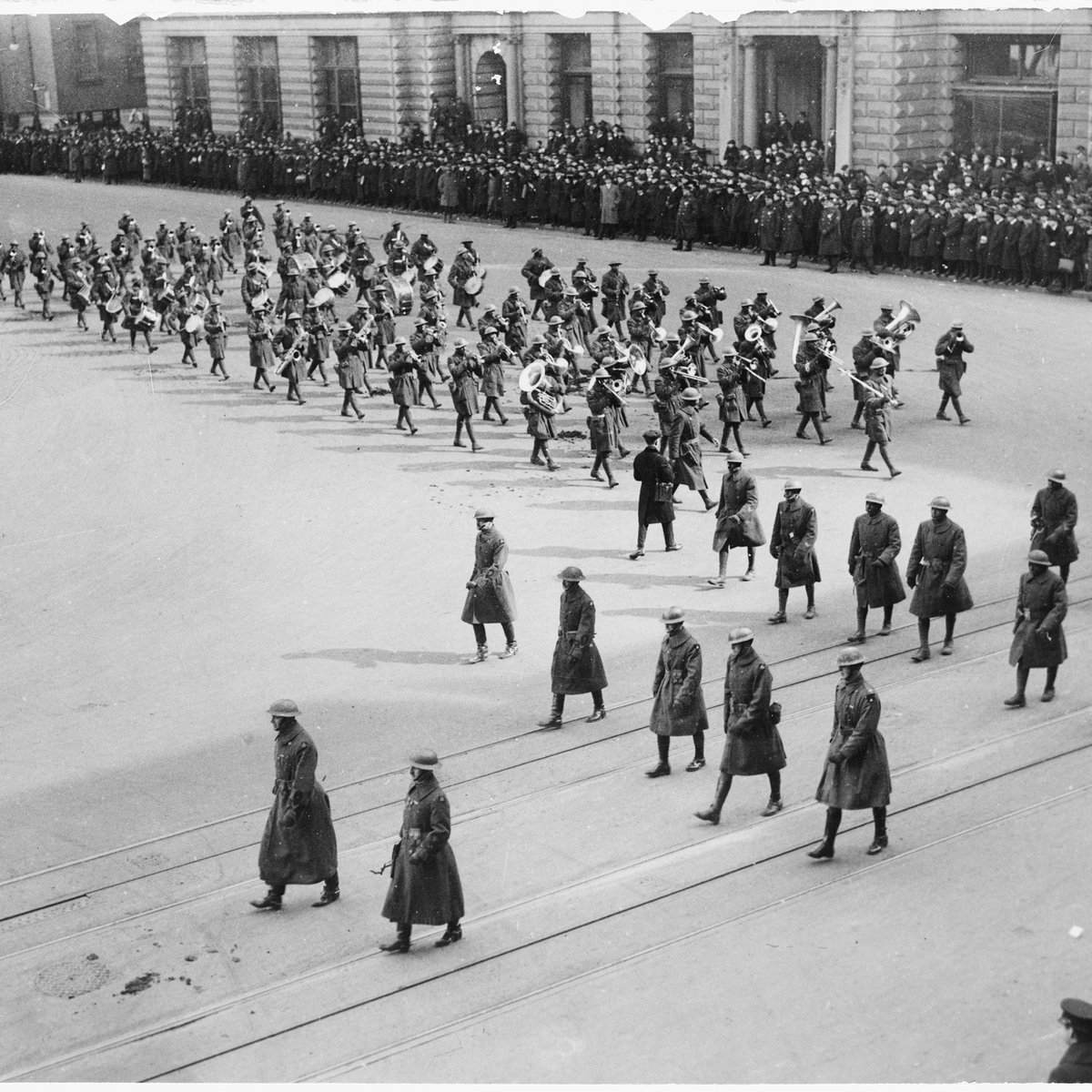Jason Moran's Voyage From the Ancient to the Future
The pianist's brilliant revival-tribute to bandleader-composer James Reese Europe
Jason Moran’s latest album, "From the Dancehall to the Battlefield," is a staggeringly ambitious work, nothing less than a stab at reconceptualizing jazz history, hoisting a fairly obscure figure—the composer-bandleader James Reese Europe (1881-1919)—onto the pantheon of major innovators, a project that forges new links and traces a new path of the music’s evolution, with Lt. Jim Europe (as he was also known) at the—or at least a—center.
Reese was a pioneer of swing and ragtime, in the years just before the christening of “jazz.” He was also a Black activist, forming the Clef Club, an all-Black musicians’ society, 150 of whom he recruited to form an orchestra, which played not only at ballroom dances but formal concerts, three years in a row (1912-14), at Carnegie Hall. These were celebrated events, popular and critically acclaimed, well before the emergence of Paul Whiteman’s imitative Original Dixieland Band or, for that matter, the likes of Louis Armstrong. During World War I, Europe fought in the trenches with the 369th Infantry Regiment, known as the “Harlem Hellfighters,” and directed the regiment’s band. (The cover of Moran’s CD is a photo of the band taken by Europe.) He died in Boston, at age 38, after a disgruntled drummer stabbed him backstage during an argument before a concert. At the time, he was one of the most famous musicians in America; his name vanished in the mist not long after.
A revival of sorts has been rumbling for about a decade, but it hasn’t amounted to much. Moran, the most versatile jazz pianist of our time, means to step it up several notches. He’s been working himself up to this album since 2012, when the great pianist, Randy Weston, who had long been probing the connections between avant-garde jazz and African rhythms, sat him down for a five-hour discussion and demonstration on the importance of James Reese Europe. In the course of extensive research, he drew on Europe's scores (many of them on file at the Schomburg Center for Research in Black Culture) and recordings (he cut records for Victor, Columbia, and Pathe, most of them preserved online). As Moran now sees it, Reese’s big advance—besides his compositions and complex large-scale arrangements—was his emphasis on syncopation, “because,” as Moran’s brief liner notes put it, , “syncopation is about urgency, pushing the beat ahead to apply the anticipation of the oncoming downbeat, an outlook that is inherently futuristic.” The notion may seem a bit fanciful at first glance, but it gathers weight on reflection, and, more to the point, this album makes the case.
Moran has long been inspired by the artists of the Association for the Advancement of Creative Musicians (AACM), among them Lester Bowie, Henry Threadgill, Anthony Braxton, and Muhal Richard Abrams, who dedicated themselves to exploring precisely these kinds of connections—the course of “Great Black Music,” as they put it, “from the ancient to the future.” One of Threadgill’s groups, Air, devoted an album, Air Lore, to mining the ragtime of Scott Joplin and Jelly Roll Morton. Moran, who knows Threadgill well and played on one of his best albums (Old Locks and Irregular Verbs), says that he was inspired by Europe as well, both his music and his creation of a Black musician’s collective.
From the Dancehall" to the Battlefield opens with a spoken tribute to Europe’s search for a new sound, which Moran recites over an elegiac theme played by his usual trio augmented with horns. Besides his many other talents, Moran has a special knack for composing stirring anthems accented by just enough minor-key dissonances to avoid sentimentalism. (Check out his soundtracks to Selma and RFK in the Land of Apartheid, as well as much of his 2021 album The Sound Will Tell You). From there, he and the band swerve into one of Reese’s most syncopated pieces, “Ballin’ the Jack,” which he intersperses with Geri Allen’s ferocious “Feed the Fire,” and the link—a direct path from the ancestors to the futurists as well as Moran’s continuity with AACM—is palpably clear.
Later on the album, he overlays wild-eyed inversions on Europe’s arrangement of W.C. Handy’s “St. Louis Blues” without violating its spirit and segues from “Flee as a Bird to Your Mountain” (a piece Europe wrote to honor fallen soldiers from his regiment) to Albert Ayler’s “Ghosts” without heavy-handedness. Many of Europe’s arrangements, he plays straight; they sound like marches or circus music; they’re unbridled joy, no wink-and-nudge postmodern irony.
It takes a few listens to realize that the zigzags are all of a piece, or at least all on the same road, which is Moran’s point.
I wish the liner notes had been a little more informative. I was puzzled, for instance, why only three of the 15 tracks were composed by Europe. I didn’t know, until doing a little research, that many of the others—those by Handy, George Cobb, Carl Bethel and Sandy Coffin—are drawn from Europe’s arrangements of those pieces, with Moran’s own embellishments, of course, bringing them up to date: as he puts it in the liner notes, “from the dancehall to the battlefield and back home to you.”
The album was recorded by Chris Allen, chief engineer of Sear Sound, using the studio’s assortment of vintage microphones and mixing the results on an analog console. The sound, as you might expect, is wonderful: vivid, dynamic, clear, and airy. I’d like to hear this one on vinyl.









































.png)








